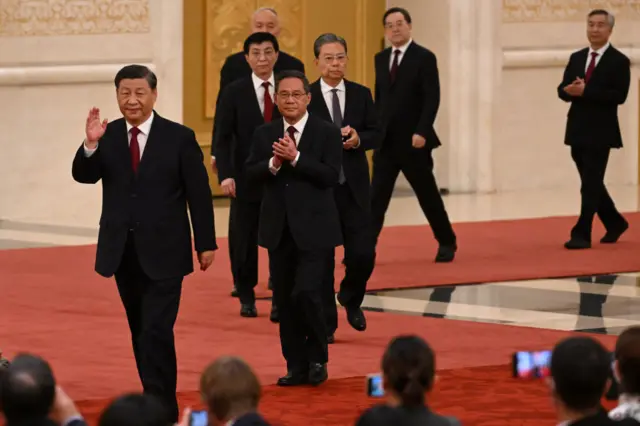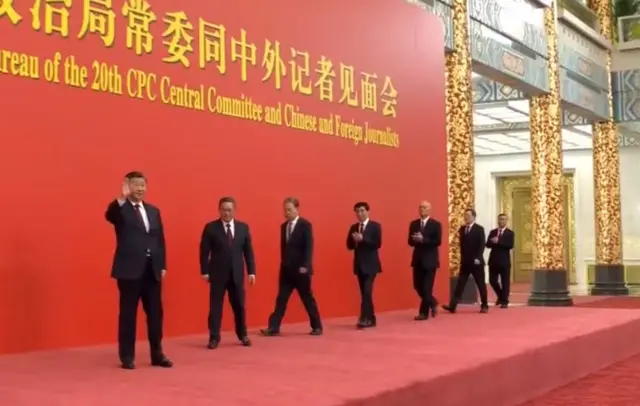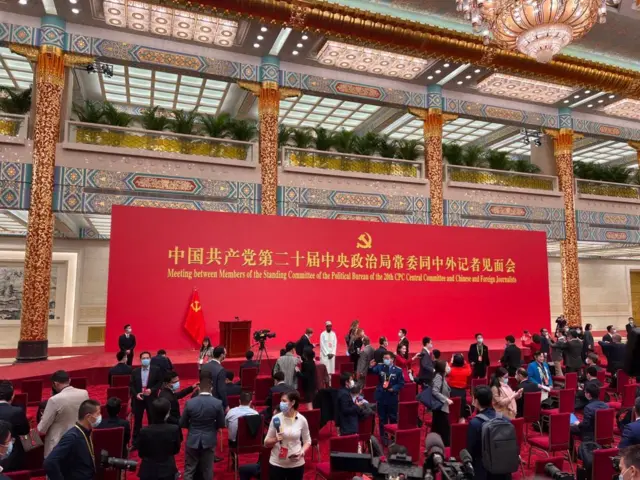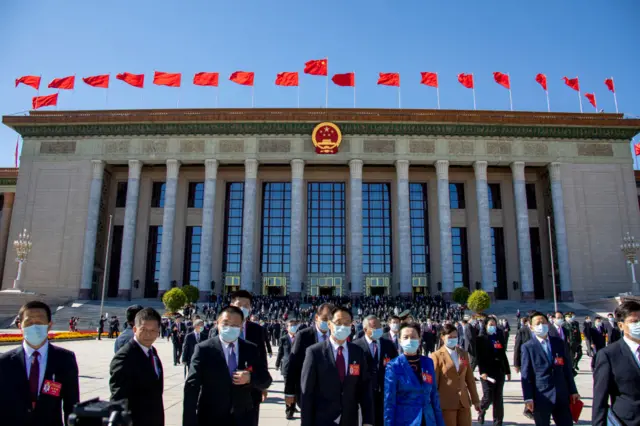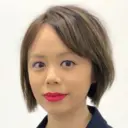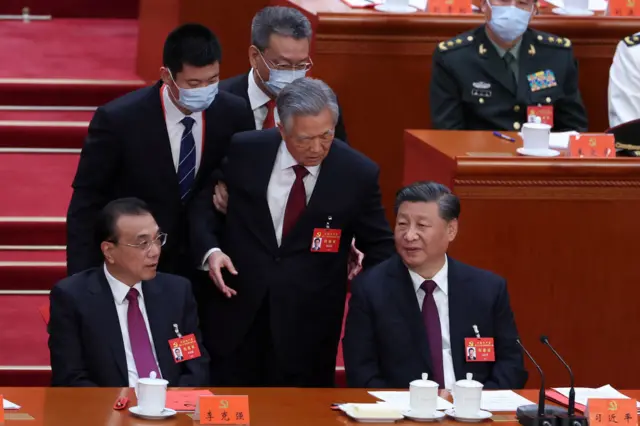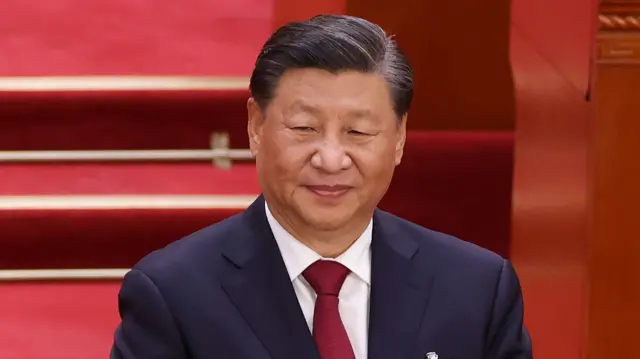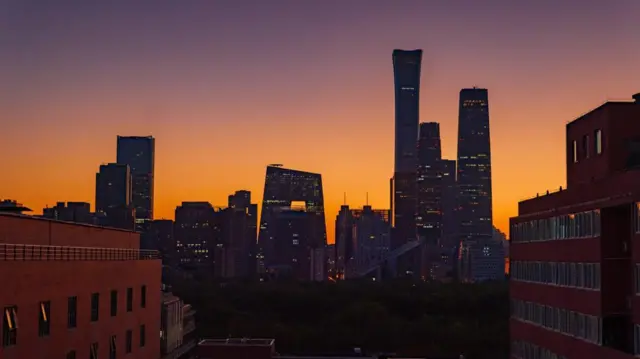'We are taking confident strides' - Xipublished at 05:25 BST 23 October 2022
Mr Xi goes on to thank the party "for the trust you have placed in us", and says the country has achieved its goal of establishing a "moderately prosperous society".
"Now we are taking confident strides on a new journey to turn China into a modern socialist country in all respects. To advance to the second centenary goal and to embrace the great rejuvenation of the Chinese nation on all fronts, for a Chinese path to modernisation," he said.
He said the country would continue to buid a modern socialist society, "a great yet enormous undertaking... the enormity is what makes it great and infinitely glorious".
